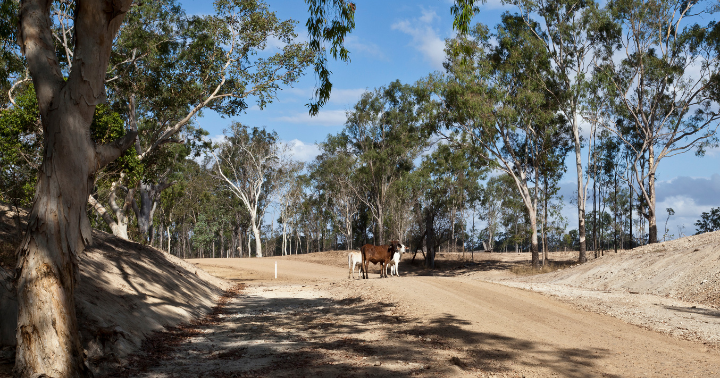
Don't Serve Legal Documents via Dropbox or You May Find Yourself Dropped Into Hot Water!
In this digital age, many businesses are embracing all the new and exciting things technology has to offer including remote working, virtual meetings and electronic file sharing.
Whilst technology has indeed revolutionised a number of ways in which we work and communicate, the legal industry is still quite a ways behind and you will find yourself dropped into hot water if you do not do your research and check if your tech-savvy approach will be accepted by a court.
The case of McCarthy v TKM Builders Pty Ltd [2020] QSC 301 is an important example of when the use of Dropbox proved fatal to an application under the Building Industry Fairness (Security of Payment) Act 2017 (Qld).
What Happened?
The Building Industry Fairness (Security of Payment) Act 2017 (Qld) (“the BIF Act”) provides for, among other things, the adjudication of disputes over progress payments in building construction contracts.
Importantly, as part of the process of applying for an adjudication decision, the BIF Act requires that an applicant must give a copy of an adjudication application to the respondent. Quite literally, section 79(3) of the BIF Act states:
‘A copy of an adjudication application must be given to the respondent.’
In the case of McCarthy v TKM Builders Pty Ltd [2020] QSC 301, the applicant, Mr McCarthy and TKM entered into a construction contract for a building project at Bells Creek.
Later, TKM filed an adjudication application in the Queensland Building and Construction Commission and on 15 June 2020, they sent an email to Mr McCarthy, attaching the adjudication application form and a Dropbox link to their submissions. The email simply stated:
“Please find below link to correspondence and attached adjudication claim lodged with the QBCC today.
https://www.dropbox.com/sh/jt7427ejjhz70ik/AACVuiCVC1Ug2YG6X27CFBuca?dl=0”[1]
Of importance, the submissions could only be obtained by opening the Dropbox link.
Mr McCarthy’s solicitors prepared and submitted a response to the adjudication application and argued that Mr McCarthy had not been given a copy of the adjudication application in accordance with s 79(3) of the BIF Act and, as a result, the adjudicator did not have jurisdiction to deal with the application.
What Did The Adjudicator Say?
Upon examination, the adjudicator held that he did have jurisdiction to deal with the application, on the grounds that:
‘the fact is that it has been demonstrated that the respondent was in possession of a copy of the adjudication application and its supporting submissions. If a document has been received by the other party, the manner in which it was served is unlikely to matter.’
The adjudicator found in favour of TKM on the payment claim and Mr McCarthy paid the amount found to have been owing.
On Appeal - Was the Application “Given” to Mr McCarthy?
The matter was subsequently appealed in the Supreme Court of Queensland and overturned by Judge Martin J, who found that TKM had failed to appropriately give Mr McCarthy the adjudication application as required by section 79 of the BIFA Act.
His reasoning? Dropbox was simply not sufficient for the purposes of section 79 of the BIFA Act and section 39 of the Acts Interpretation Act 1954 (Qld) which also provides for the service of documents.
In making his decision, Judge Martin referred to the decision in Conveyor & General Engineering Pty Ltd v Basetec Services Pty Ltd [2015] 1 Qd R 265 at 268 [22], where Justice McMurdo said:
“[37] Actual service does not require the recipient to read the document. But it does require something in the nature of a receipt of the document. A document can be served in this sense although it is in electronic form. But it was insufficient for the document and its whereabouts to be identified absent something in the nature of its receipt. The purported service by the use of the Dropbox facility may have been a practical and convenient way for CGE to be directed to and to use the documents. But at least until 2 September 2013 (when Mr How became aware of the contents of the Dropboxes), it did not result ‘in the person to be served becoming aware of the contents of the document’.”
Judge Martin held that Mr McCarthy was not given a copy of the adjudication application in accordance with section 79 of the BIFA Act and as a result, the adjudicator did not have the necessary jurisdiction to make the decision.
Lesson Learnt
It is pretty clear that if you are required to ‘give’ another party a document under the BIF Act, you should avoid using Dropbox. You will save yourself being dropped into some seriously hot water like TKM in this matter.
Whilst it might be tempting to use exciting new technology in every aspect of your business and dealings, how you share, serve and file documents in legal proceedings can make or break your claim and it is therefore vital that you get the right advice from the start before you take a wrong turn.
For advice and support with disputes and the construction industry, contact our Dispute and Construction division:
Sharne Lategan
Principal Director & Legal Advisor – Construction & Disputes









